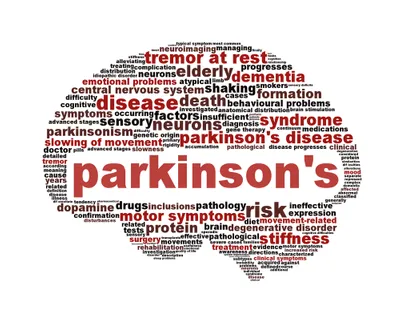Well many of us associate certain smells with happiness, safety, and enjoyment—campfires and lilacs come to mind for me—other smells (or lack thereof) can warn you of trouble and even indicate certain underlying health conditions.
According to research from the New York University School of Medicine, a faulty sense of smell is worth bringing up with your primary care physician as it can help with the early diagnosis of many diseases and health issues…
1. Upper Respiratory Infections
According to data published by the National Institutes of Health, certain changes in your sense of smell can indicate a more obvious issue with your olfactory or respiratory system.
For instance, a sudden change or lack of smell can result from a recent illness or injury such as a sinus infection or an upper respiratory infection. Because smells run take 2 routes (either the nostrils or throat to nose) to reach the olfactory sensory neurons—any blockages (i.e., congestion) can distort smell and taste.
2. High Blood Pressure
Studies conducted by Chicago’s Smell & Taste Research and Treatment Foundation link decreased smell with the presence of hypertension. Indeed, too much salt will eventually lead to high blood pressure.
However, the opposite is also true—any loss of smell or taste can also lead to adding more salt to your food. Oftentimes when patients complain of lack of taste, they’re actually suffering from diminished smell and over the long term of adding more and more salt to food they can develop hypertension.
3. Type II Diabetes
According to research compiled by the Obesity Society, a lack of smell can really add up…to weight gain. Lack of food enjoyment will often stem from loss of taste and smell—which often leads to a cycle of overeating.
Chicago-based psychiatrist and neurologist, Dr. Alan R. Hirsch, diminished taste and smell can cause patients to eat more, gain weight, and develop type 2 diabetes, all because they are unable to enjoy the foods their eating and attain appetite gratification.
4. Parkinson’s Disease
Researchers from Mercy Medical Center, in Baltimore, Maryland, draw a direct link between sense of smell and degenerative brain disorders, like Parkinson’s disease.
Imagine the route any scent takes to reach your brain. First the smell triggers the olfactory sensory neurons high in the nose, which fires a message off to the brain and registers it as a certain smell. However, if a brain disorder is present, the scent message will never reach the brain or it will communicate improperly.
5. Alzheimer’s
Similar to the Parkinson’s disease comparison, smell disorders and the presence of early stage Alzheimer’s disease also go hand-in-hand. In fact, diminished ability to smell is a primary early indicator of Alzheimer’s.
A study conducted by scientists at the University of Florida conducted a smell test using peanut butter on participants’ left versus right nostrils. They concluded that study members who experienced diminished smell via the left nostril were prone to early-stage Alzheimer’s, even prior to establishing a firm diagnosis.
6. Nasal Polyps
According to the American Academy of Otolaryngology, loss of your sense of smell can also indicate the presence of growths, or polyps, in the nasal passages or sinus cavities.
Oftentimes these polyps aren’t cancerous, but they will drastically compromise the ability to smell, taste, enjoy food, and identify dangerous scents (i.e., fire or chemicals). In most cases, once nasal obstructions are removed airflow improves and smell and taste are restored fully.









